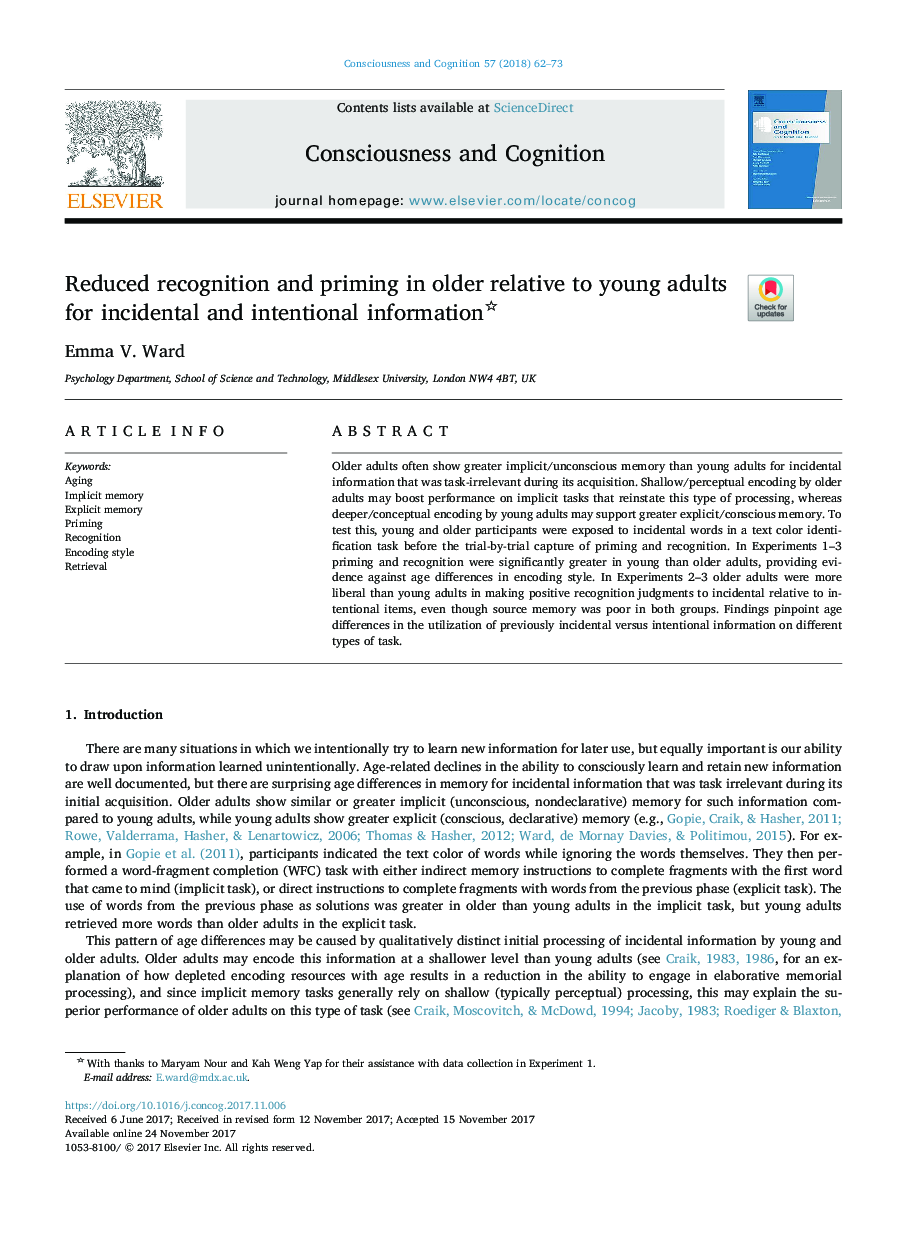| Article ID | Journal | Published Year | Pages | File Type |
|---|---|---|---|---|
| 7288196 | Consciousness and Cognition | 2018 | 12 Pages |
Abstract
Older adults often show greater implicit/unconscious memory than young adults for incidental information that was task-irrelevant during its acquisition. Shallow/perceptual encoding by older adults may boost performance on implicit tasks that reinstate this type of processing, whereas deeper/conceptual encoding by young adults may support greater explicit/conscious memory. To test this, young and older participants were exposed to incidental words in a text color identification task before the trial-by-trial capture of priming and recognition. In Experiments 1-3 priming and recognition were significantly greater in young than older adults, providing evidence against age differences in encoding style. In Experiments 2-3 older adults were more liberal than young adults in making positive recognition judgments to incidental relative to intentional items, even though source memory was poor in both groups. Findings pinpoint age differences in the utilization of previously incidental versus intentional information on different types of task.
Related Topics
Life Sciences
Neuroscience
Cognitive Neuroscience
Authors
Emma V. Ward,
